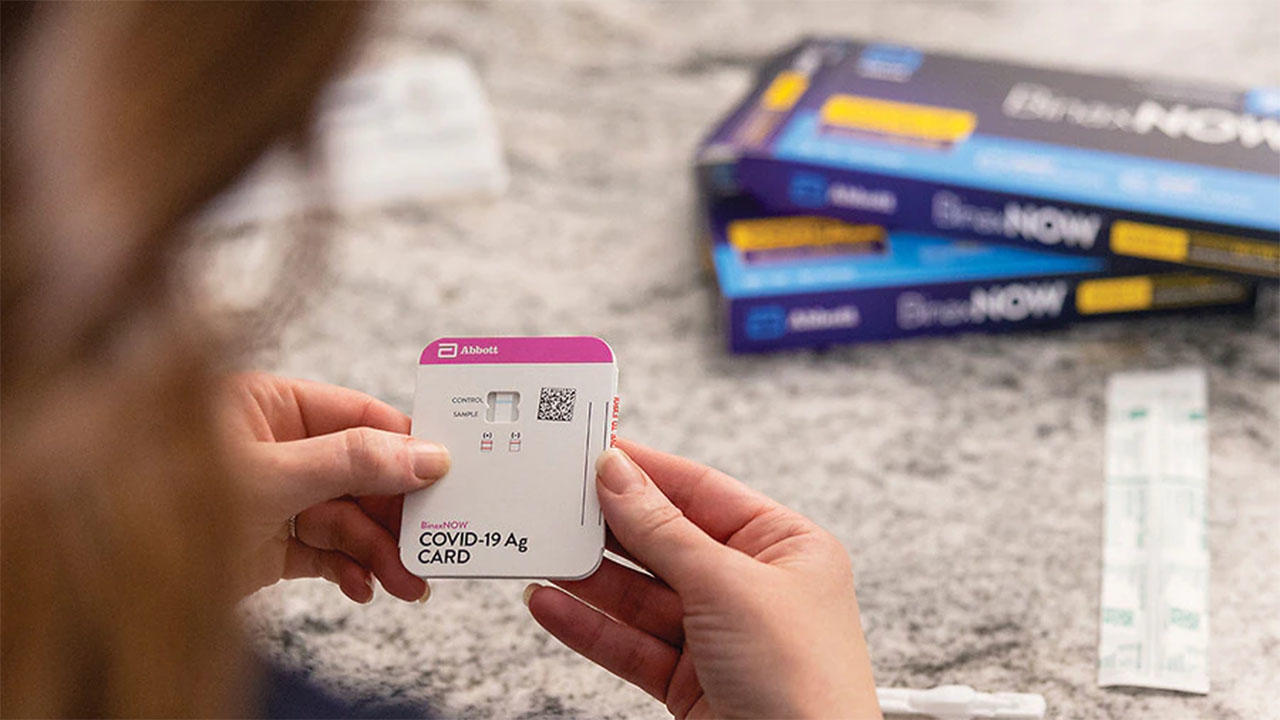According to the Ecuadorian Association of Distributors and Importers of Medical Products, the cost of the test would not exceed $7.00
Last January, a family of 15 members was tested for Covid-19. Five of those tests returned a positive result, ten came back negative. However, those results were not part of the statistics kept by the Ministry of Public Health (MSP) on infections.
Because the family had obtained at-home antigen test kits which took only 15 minutes to report the results. The effectiveness of these at-home tests is between 95% and 96%, as long as it is carried out on certain days, taking into account a person’s viral load. And they cost between $5.00 and $7.00.
This example is one of the reasons that the Ecuadorian Association of Distributors and Importers of Medical Products (Asedim) are proposing that rapid self-take nasal antigen tests to detect Covid-19 be approved for widespread use in Ecuador.
Luis Villegas, president of the board of directors of that association explained that the price of these tests would not exceed $7.00, and his group is hoping to have them sold direct-to-consumers in pharmacies.
“These new tests do not require the supervision of an experienced health professional and let us say now, that they would be very useful for re-entry to work or for social events, which greatly supports these self-take tests, since they strengthen the vaccination system and the two together can provide more security,” he said.
Villegas said that the specificity and sensitivity of the tests are above 90% and they are massively used worldwide. In addition, he added that pharmacy chains are ready to offer the product to citizens.
He added that a cloud computing solution has been presented, an app where the test result can be recorded into the country’s public healthcare system. He also said that they have delivered the documentation to the Government, which includes a guide on how it would be implemented, and they are awaiting a response.
Minister disagrees with concept
The Minister of Health, Ximena Garzón, specified that at the moment self-test tests are not marketed in pharmacies because they have low sensitivity compared to specificity.
“When they are too specific, they give many false negatives, that is, in 100 people with the omicron variant, 50 of them would give false negatives, what could cause this? That, for example, you have no symptoms, you do a swab, a self-test and it comes out negative and you go to visit your grandparents for Easter (…) and your grandparents can get infected and can get complicated,” she explained.
The official maintained that the incredible handling of the pandemic by the Ministry of Public Health (MSP), was among other aspects, because when a person goes to a clinical laboratory to take a coronavirus detection test and it comes out positive, the laboratory reports the result so they can do epidemiological fences when there are many positive cases, even with antigen tests.
She stated that the moment people take a self-test and do not report it, the Government loses that capacity for epidemiological control.
Garzón added that epidemiological surveillance activates epidemiological fences, and georeferencing of cases, and that being able to determine where it is necessary to immunize more or make fences, is what has resulted in the good management of the pandemic in Ecuador.
“These are circumstances that we have to continue evaluating in order to determine whether or not it is epidemiologically convenient for people to be able to do a self-test, which can be bought in pharmacies (…), monitoring the pandemic is an extremely enormous responsibility,” she added.
For Garzón, adequate epidemiological surveillance has been carried out in Ecuador, which has allowed economic reactivation and recently there have been no outbreaks or increase in admissions in hospitalizations or in intensive care units.


0 Comments